Ugly truth about America’s medical industry
SHOCKING pictures of a couple slumped like zombies in the front of a car have exposed a uniquely American problem.
AMERICA is in the grips of an opioid epidemic.
Shocking pictures emerged over the weekend of a couple passed out in their car after taking a hit in front of their dealer’s house in Ohio, a state which has the dubious honour of being nicknamed the “overdose capital of America”.
Police pulled them from their car and administered a substance called Narcan — which counteracts the opioids — by nasal syringe.
The woman, who had been slumped in the driver’s seat with her hand on the wheel and her head on her partner’s shoulder, regained consciousness.
Her 40-year-old partner remained in a stupor, and was taken to hospital.
It’s a symptom of an almost uniquely American problem, because unlike most developed countries, its health system is run as an industry and not a service.
The commercialisation of medicine and the enormous power of the country’s pharmaceutical companies means the crisis didn’t start on street corners.
It began in doctors’ offices and hospitals.
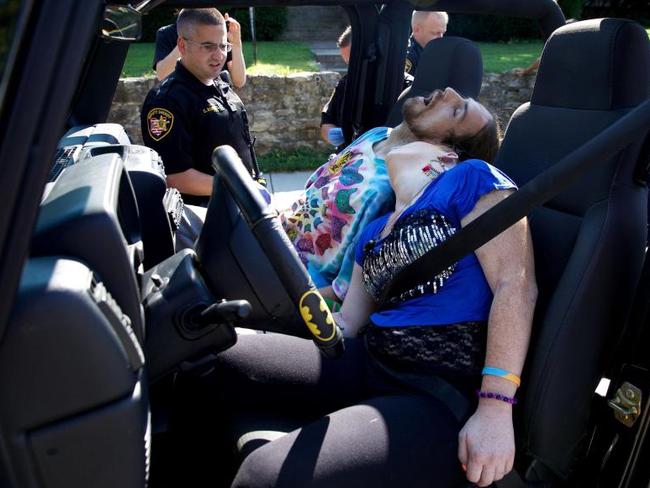
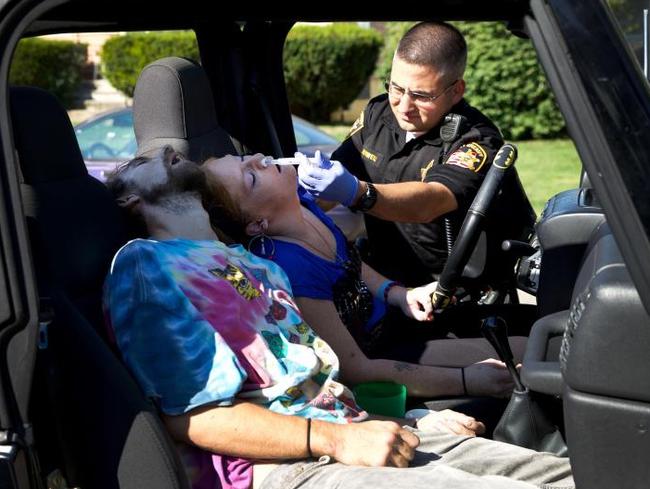
Fentanyl is said to be 50 times stronger than heroin, and 1000 times more potent than morphine — essentially, it’s an elephant tranquilliser.
The centre of the epidemic is Dayton, a sleepy midwest city of 140,000 people.
In recent years, the city has been flooded with a synthetic opioid called fentanyl, an extremely potent drug Mexican cartels are trafficking into the United States.
At least 365 people died between January and May this year from drug overdoses alone — a sharp increase from the 371 who died in 2016.
“We’re on a pace to have 800 people die this year due to overdose in our county,” local Sheriff Phil Plummer told NBC News.
“Per capita, we’re number one in the nation in overdose deaths.”
Coroner Kent Harshbarger agreed: “This is no different than some kind of mass-casualty event in any other form. It’s just a medical event.
“It needs to be recognised that way to bring some federal assets to help us.”
Last year, his morgue was expanded from 36 spaces to 42, and now he’s considering renting additional space in funeral homes to handle the overflow.
He estimates the state will see some 10,000 overdoses by the end of the year.
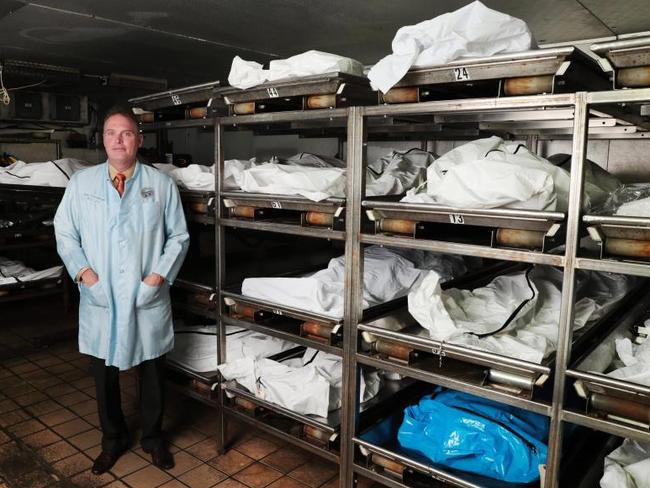
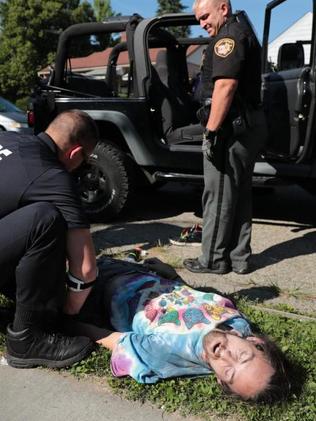

Ohio isn’t the only state suffering a spike in drug-related deaths.
Funeral director Peter Kilbacki, from Brunswick Memorial Home in New Jersey, last week wrote a brutal open letter calling for the community to fight the problem.
“Those who know me know I’m not prone to profanity, and as the consummate professional, I cannot say this to the parents, children, siblings, friends, and neighbours that we serve in the aftermath of opioid addiction,” he wrote.
“But I want to scream it out loud. F*** you heroin.”
He said from his personal experience, he can tell the problem is getting worse.
“Folks, we have a problem, a very real problem right here in our backyard ...
“I speak to local police officers who are issued two doses of Narcan at the beginning of their shifts, and have to come back to the station before their shift is over because they've already used the initial two doses. True story.
“I see the emotional devastation left behind ... The failed stints in rehab. The relapses. The torn and wrecked families. I’m distressed to walk family and friends to a casket containing the broken dreams of a life lost.
“I know addiction is a disease. It doesn’t respect title, your station in life, your socio-economic status, or anything else. Trust me … I’ve seen it all. F*** you opioids.”
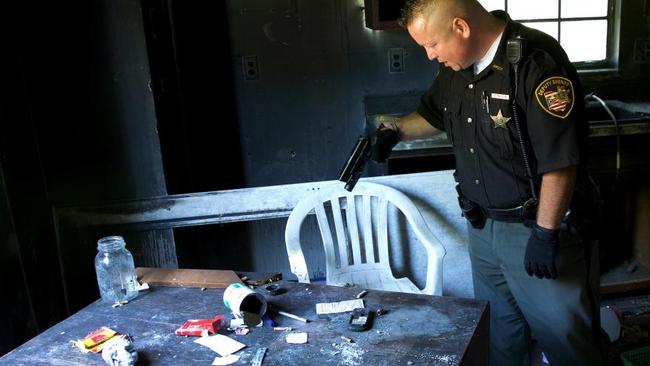
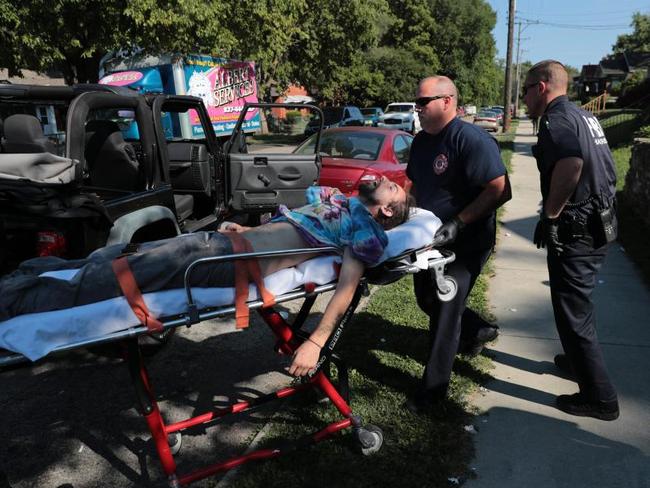
US President Donald Trump addressed the nation’s drugs crisis this week, but critics suggest his response simply put the blame on the victims.
“The best way to prevent drug addiction and overdose is to prevent people from abusing drugs in the first place,” he said, adding young people should simply be told drugs are: “No good, really bad for you in every way”.
A recent commission on the issue found the grim reality is “the amount of opioids prescribed in the US was enough for every American to be medicated around the clock for three weeks”.
It said: “We have an enormous problem that is often not beginning on street corners; it is starting in doctor’s offices and hospitals in every state in our nation”.
Shockingly, the US consumes more than 80 per cent of the global opioid pill production even though it has less than five per cent of its population.
Critics, such as Chris McGreal from The Guardian, argue teaching children to say no is clearly not enough to combat an entrenched culture.
“Opioid pills are far cheaper and easier than providing other forms of treatment for pain, like physical therapy or psychiatry,” he wrote.
“People coughing up large amounts of money in insurance premiums and co-pays expect results. They are, after all, more customer than patient.”




